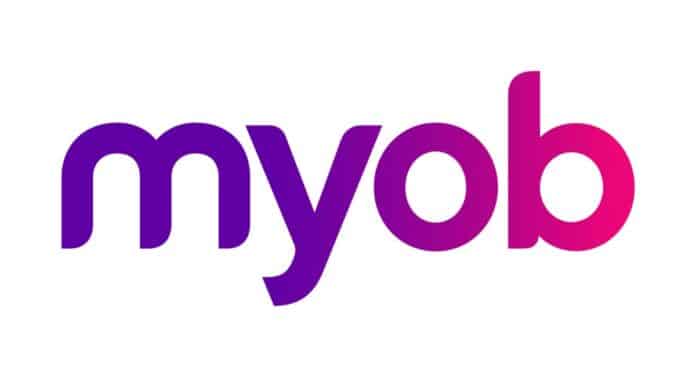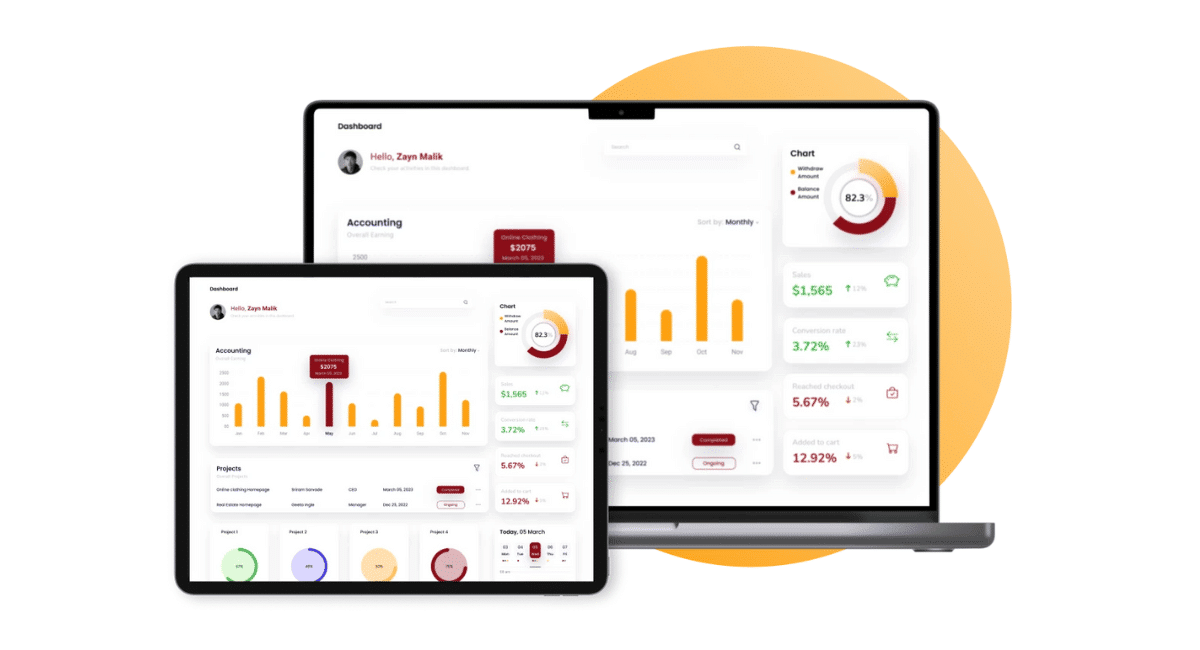Have you ever considered the importance of MYOB Accounting Software in your Singaporean business? If so, you may have realized that this software can provide significant automation and efficiency in your company’s operations.
However, it’s essential to be aware that despite the success and potential profits it offers, implementing MYOB comes with high complexity that demands significant time and costs, as highlighted in several user reviews.
Therefore, it is crucial for companies to make well-thought-out considerations before deciding to adopt the MYOB application.
In this article, we will delve further into the challenges that customers face when using MYOB Accounting Software and the factors that can lead to dissatisfaction for some users. Explore the intricacies and make informed decisions for the seamless integration of MYOB into your business operations in Singapore.
Table of Content:
Table of Content
What is MYOB Accounting Software?
MYOB Accounting is accounting software designed to assist companies in managing their finances and accounting processes. The MYOB Accounting application provides various features and functions, including ledger management, transaction recording, inventory tracking, payroll management, financial report generation, and more.
By utilizing this software, companies can automate many accounting processes that were previously done manually, reducing human errors or human-error, enhancing efficiency, and providing a better understanding of the company’s finances.
Moreover, this accounting software vendor allows integration with other systems, such as inventory management or customer management systems, to provide a more comprehensive and integrated overview of overall business performance.
Challenges in the Implementation Process of MYOB Accounting Software
Every business has unique needs and specific expectations regarding the accounting system they use. Despite its popularity, MYOB Accounting Software may not always meet user expectations.
While many companies use the application to manage their finances and accounting processes, there are situations where users feel dissatisfied with its usage. Some users face challenges and difficulties in implementing this system according to their needs. Here are some challenges in the implementation of this system:
Mistakes in choosing the right distributor or vendor
As a primary choice for many businesses, MYOB Accounting plays a vital role in supporting company operations. In Singapore, the variety of distributor options for MYOB often influences the effectiveness of software implementation within the business scope.
Since MYOB is a system produced by a foreign company, choosing the right vendor or distributor is crucial when opting to use this system. However, many companies still fail to pay attention to the track record and previous client experiences of the chosen MYOB distributor.
Opting for the wrong distributor can lead to unsatisfactory MYOB implementation, as evident from some unsuccessful implementations in various companies. The wrong distributor can cause various obstacles in the integration, maintenance, and technical support of MYOB.
Making the wrong decision in choosing a distributor can significantly impact the quality of MYOB implementation and substantially influence the success of the project.
To find the right vendor, companies must conduct surveys of available vendors in the market. A company can determine the best system that suits its business needs by comparing different accounting software vendors.
Limitations in Singapore tax reporting features
While MYOB is comprehensive in many accounting aspects, it’s not fully adapted to meet the complexity and specificity of tax regulations in Singapore.
This accounting application lacks complete features to generate tax reports according to Singapore tax regulations. This results in users having to manually adjust or process additional data to ensure compliance with local tax regulations.
This condition can be a hindrance for companies seeking an accounting solution that can automatically integrate all tax reporting aspects according to the standards and rules applicable in Singapore.
The system’s inability to cope with the complexity of Singapore taxation can be a source of disappointment for users expecting a system to help them efficiently meet taxation requirements.
Limitations for a single company
MYOB can be categorized as software that is less flexible to manage among various business branches within a single corporate group. This is due to the limitation of the system’s use for only one company, indicating that the application may not be effectively applied to manage finances if a company has multiple businesses or branches requiring separate accounting data and reporting.
In practice, this necessitates each branch to have its own MYOB installation, potentially increasing complexity in overall financial data management and complicating the process of consolidating financial reports between branches or subsidiaries.
Using a single instance of MYOB Accounting for all business entities can lead to data mixing, difficulty in monitoring the performance of each entity, and the creation of less detailed and accurate reports.
Language limitations
Although MYOB generally provides a user interface in various languages, there are sometimes specific user or company needs that are not fully accommodated. For instance, in the context of configuring reports or using local accounting terms that might not be entirely covered in the language options provided by MYOB.
The available language in the system is only English, which can be a constraint for companies with teams or users more comfortable using their local language. This limitation may require manual adjustments or additional interpretation, leading to potential errors related to understanding and using the accounting software.
Users might face difficulties in understanding instructions, menus, or terms used in English, which, in turn, can hinder productivity and slow down the accounting process.
Mismatched balance sheet format with Singapore financial standards
MYOB Accounting Software generally adopts a balance sheet format that refers to Australian financial standards or other international formats. The discrepancy in the balance sheet format with Singapore financial standards can lead to confusion and difficulties for users who follow a different local financial format.
Consequently, users may struggle to interpret financial statements, generate accurate reports according to local requirements, or meet the reporting obligations set by Singapore financial authorities. In facing these challenges, companies should adjust the balance sheet format to ensure that financial reports are produced in compliance with prevailing regulations, providing accurate and relevant financial information.
Lack of multi-currency support
This feature is crucial, especially for companies operating globally or engaging in transactions with customers and vendors from various countries with different currencies. MYOB’s inability to handle multiple currencies can result in challenges in accurately tracking and reporting financial transactions, requiring additional efforts for manual currency conversion.
This can lead to inaccuracies in financial calculations and reporting, difficulties in keeping up with exchange rate fluctuations, as well as challenges in monitoring and controlling currency-related risks. To address these issues, companies may need to consider alternative solutions or additional processes to manage transactions involving multiple currencies effectively.
No multi-warehouse support
The absence of multi-warehouse support in MYOB Accounting Software restricts a company’s ability to efficiently manage their inventory from multiple storage locations. While multi-warehouse functionality allows businesses to streamline stock management, MYOB does not provide built-in support for this feature. This can lead to difficulties in tracking inventory, shipments, and sales originating from or heading to various warehouses.
The incapacity to support multi-warehouse features can be a constraint for companies with multiple warehouses or branches. This is because companies require separation and tracking of inventory independently. Users may face challenges in monitoring inventory in each warehouse, managing stock transfers between warehouses, and generating accurate inventory reports for each location.
It is crucial for MYOB accounting applications to actively address and develop solutions for the mentioned issues. Limitations such as the lack of Singapore tax reporting features, restrictions on a single company, language limitations, and others can be improved to enhance user experience and provide better solutions aligned with business needs.
HashMicro Accounting Application as a Better Alternative to MYOB Accounting Software
HashMicro, as an accounting application, stands out as a worthy alternative to MYOB Accounting Software. This accounting system offers a more comprehensive solution for businesses to manage their finances and accounting processes.
HashMicro’s system is based in Singapore, ensuring it is designed to meet accounting needs in accordance with Singapore financial regulations, including balance sheet preparation following the accounting standards of the country. Not only that, but the system also facilitates companies with its comprehensive features.
Here are six shortcomings of MYOB that HashMicro can do:
- It includes complete Singapore tax reporting features, ensuring financial reports generated to comply with PSAK.
- With multi-company support, users have the flexibility to manage businesses with multiple branches or companies.
- The accounting system supports various languages, including Singapore English, allowing users to comfortably use the application in their preferred language.
- It adopts a balance sheet format suitable for Singapore financial standards, enabling users to create financial reports in line with applicable standards in Singapore.
- The system features multi-currency support, automating transaction management and financial reporting in various currencies.
- It offers a more comprehensive and customizable feature set, including accrual-based accounting reporting methods and financial ratio features.
Conclusion
An accounting system is crucial for the continuous operation of a company, especially in automating the recording and calculation processes of overall transactions, enhancing bookkeeping accuracy without human error.
However, not all accounting system developers offer the same features and advantages. Therefore, it is essential for companies to choose the best software for optimal results and overcome constraints. One accounting software in Singapore that provides the most comprehensive features and can be tailored to business needs is HashMicro’s Accounting System.
By using HashMicro’s accounting software, you can not only record and calculate transactions but also project future cash flows related to income and expenses, and generate accurate analysis reports in seconds. Get a tailored price quote for your business and schedule a free demo now!





































